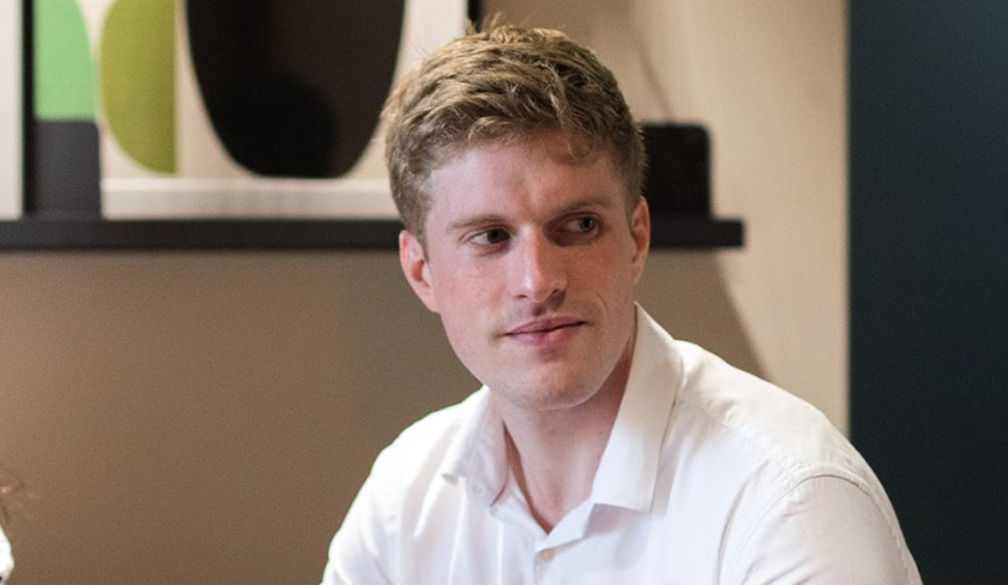
Applying my Economics MSc to Public Healthcare in Thailand
Chris studied MSc Economics at the University of Manchester. He now works as a Project Associate at the Health Intervention and Assessment Programme in Thailand, helping inform health policy decisions and fight the COVID-19 pandemic. We talked to him about how his time at Manchester helped him find his career.
Hi Chris, tell us a little bit about what you do?
I work at the Health Intervention and Technology Assessment Program (HITAP), a research organisation within the Ministry of Public Health Thailand. I was placed in this role as part of the Overseas Development Institute’s Fellowship Scheme.
I work in HITAP’s International Unit, which provides technical support to other low- and middle-income countries on using evidence to inform health policy decisions. In practice, this means conducting training sessions on topics of interest (such as health economics) and supporting our partners on applying these skills in their local context. I work predominantly with our partners in India and Kenya. Throughout COVID-19, the International Unit has also assisted with issues arising in Thailand. We provide rapid evidence reviews to scientific questions raised by senior members of the Ministry. We have also developed mathematical models that have informed the national vaccination strategy, and the implementation of non-pharmaceutical interventions (e.g. quarantine policies and social distancing measures) in Thailand. We also try to publish the work that we do as much as possible in peer-reviewed journals.
Did you always know that you wanted to do this? How did you get into it?
I don’t think I even knew that this sort of career existed or was an option for economists when I was doing my Master’s – I had absolutely no idea!
I did one module in health economics during the Master’s degree, which I found really interesting and different from everything else I’d done at that point. I then did my dissertation within the health economics department. The only thing I knew at that time was I wanted to do a job where I was applying my economics degrees, rather than my degrees just being some measure of aptitude or a display of a skillset that is desirable to employers.
I think my original plan after graduating was to try and do a series of internships in different fields of applied economics to find out what I liked most before committing to anything. Instead, I ended up staying at the first company I did an internship with – a sort of happy accident in the end.
How did your course set you up on your career path?
I think one of the most underrated skills (or it seemed so at the time, anyway) that we worked on was our communication and presentation skills. On some of the applied economics modules we were required to give presentations on journal articles to explain various quantitative methods and case studies. At the time, I can remember thinking that it seemed a bit of an inconvenience and very different to most of the assessments we had on other courses, and I definitely didn’t enjoy doing it. However, in my jobs since then it has been a common occurrence that I’m the only economist in a room or on a call, and it’s crucial that I’m able to convey complex technical material in a way that people from a variety of backgrounds will understand. The network you develop on a Master’s course is also really useful – the cohort size is much smaller than at undergraduate so you get to know everyone well, I’ve discussed jobs with people from my course and even my dissertation supervisor, who I stayed in touch with after finishing the course.
Aside from this, I think that my desire to seek a career in applied economics really stemmed from the elective modules that I chose throughout the Master’s course. The elective modules opened my eyes to the multitude of practical applications of economics that exist.
In a more literal sense, the Fellowship scheme that led to me being placed in Thailand only considers applicants with a postgraduate degree in Economics or Statistics, so I wouldn’t have been eligible for this job without it.
And why did you originally choose to study at UoM?
The university and course had a great reputation. I’d already been in Manchester for my undergraduate degree and couldn’t imagine leaving at that point. I’d fallen in love with the city, it’s a vibrant, accessible and multifaceted place. It is such a fun place to be a student too, there is so much to do in the city – great music, food and nightlife. I always preferred the feel of universities that were integrated into the city rather than on isolated and distinct campuses and UoM definitely ticked that box for me.
Finally, what piece of advice would you give to someone who’s about to join UoM?
Manchester has a really great careers service, and I remember that the Economics department organised some great events with a huge range of employers. I would definitely recommend that students attend the careers events for jobs even if you think it’s unlikely that you’d be interested in them or would actually apply – there’s no harm in confirming that suspicion, and sometimes you might discover a job or field which really interests you. If you do find something that interests you, that may impact the choices you make for your elective modules or even your dissertation.






0 Comments